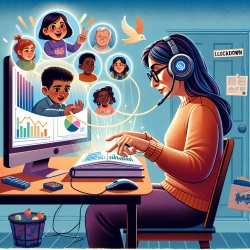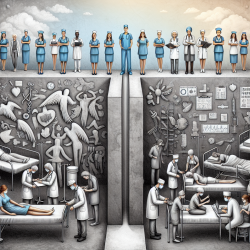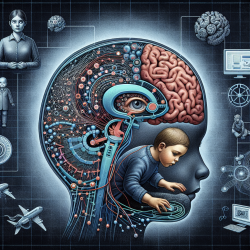Understanding the Impact of Screen Time and Sleep Quality on Mental Health
The COVID-19 pandemic has significantly altered our daily routines, leading to increased screen time and disrupted sleep patterns. These changes have had profound effects on mental health, particularly among preclinical medical students. A recent study published in BMC Psychiatry explored the association between mental health disturbances, screen time, sleep quality, and depression among Indonesian medical students during the pandemic. This research offers valuable insights that can help practitioners enhance their therapeutic strategies.
Key Findings from the Research
The study involved 1,023 preclinical medical students and utilized various assessment tools, including the General Health Questionnaire-12 (GHQ-12), Patient Health Questionnaire-9 (PHQ-9), and Pittsburgh Sleep Quality Index (PSQI). The results revealed that nearly half of the participants (49.1%) experienced current mental health disturbances, characterized by psychological distress, social dysfunction, or both. Notably, there was a significant association between mental health disturbances and both depression and sleep quality, but not with screen time.
- Depression: Students with mental health disturbances had significantly higher depression scores compared to those without.
- Sleep Quality: Poor sleep quality was more prevalent among students with mental health disturbances.
- Screen Time: While screen time increased during the pandemic, it did not show a significant correlation with mental health disturbances in this study.
Implications for Practitioners
These findings underscore the importance of addressing mental health disturbances in preclinical medical students. Practitioners can leverage this information to refine their therapeutic approaches. Here are some actionable strategies:
- Integrate Mindfulness Therapy: Encourage students to engage in mindfulness practices to reduce stress and improve mental well-being.
- Support Groups: Facilitate peer support groups to provide a safe space for students to share experiences and coping strategies.
- Stress Management Workshops: Offer workshops focused on stress management techniques to help students navigate the pressures of medical education.
- Sleep Hygiene Education: Educate students on the importance of sleep hygiene and provide practical tips to enhance sleep quality.
Encouraging Further Research
While this study provides valuable insights, further research is needed to explore the intricate relationships between screen time, sleep quality, and mental health. Practitioners are encouraged to contribute to this growing body of knowledge by conducting studies that examine these variables in different populations and settings.
To read the original research paper, please follow this link: Mental health disturbance in preclinical medical students and its association with screen time, sleep quality, and depression during the COVID-19 pandemic.










